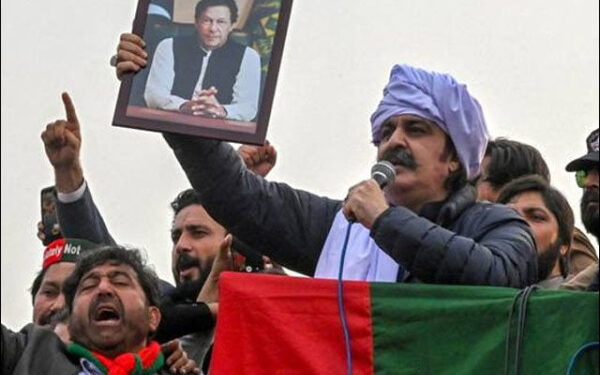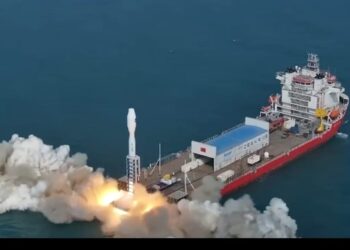In a significant development on October 5, 2024, non-bailable arrest warrants were issued against several key leaders of the Pakistan Tehreek-e-Insaf (PTI) party, including Khyber Pakhtunkhwa Chief Minister Ali Amin Gandapur and former Federal Minister Hammad Azhar. The case pertains to protests and alleged acts of violence against the police during political demonstrations in Lahore, the capital city of Punjab province.
This legal action marks a new chapter in the ongoing tensions between PTI and the ruling authorities following the events surrounding the party’s political mobilizations across Pakistan.
Background of the Case: PTI’s Protest Movement
The warrants are connected to a series of protest demonstrations organized by PTI in Lahore. These protests were part of a broader political movement launched by PTI to demand early general elections and challenge the legitimacy of the incumbent government. The political climate in Pakistan has been highly charged, with mass rallies, road blockades, and sit-ins becoming a frequent occurrence.
During one of these protests, clashes reportedly broke out between PTI supporters and the Lahore Police, leading to accusations of violence, property damage, and interference with law enforcement duties. The authorities responded by registering multiple First Information Reports (FIRs), including one at the Masti Gate Police Station against top PTI leaders.
Court Proceedings: Non-Bailable Arrest Warrants Issued
The case was heard by the Anti-Terrorism Court (ATC) Lahore on October 5, 2024. Admin Judge Manzar Ali Gul presided over the proceedings. The Lahore Police presented their arguments before the court, stating that despite repeated summons, Ali Amin Gandapur, Hammad Azhar, and other PTI leaders had failed to cooperate with the investigation.
Citing the leaders’ continued absence and lack of cooperation, the police requested the issuance of non-bailable arrest warrants to ensure their presence in court. After hearing the arguments, Judge Manzar Ali Gul approved the request and issued non-bailable arrest warrants against five PTI leaders.
PTI Leaders Named in Arrest Warrants
The PTI leaders for whom non-bailable arrest warrants have been issued include:
- Ali Amin Gandapur – Chief Minister of Khyber Pakhtunkhwa
- Hammad Azhar – Former Federal Minister and senior PTI figure
- Saeed Sindhu – PTI Leader
- Shahbaz Ahmed – PTI Leader
These leaders are accused of participating in or abetting the violent protests and resisting law enforcement.
Police’s Standpoint: Lack of Cooperation from PTI Leaders
During the court proceedings, Lahore Police emphasized that they had made multiple attempts to summon and investigate the named PTI leaders regarding their involvement in the violent protests. However, according to the police, the leaders did not appear for questioning or provide any cooperation.
The police argued that without their arrests, the investigation could not proceed effectively. Their absence, the police claimed, was impeding justice and violating the legal process.
The police have also cited security camera footage and eyewitness testimonies linking the accused leaders to the protest events and subsequent violence.
Legal Charges and Case Details
The case registered at Masti Gate Police Station includes serious charges under various sections of the Pakistan Penal Code (PPC) and Anti-Terrorism Act (ATA). The charges include:
- Inciting violence against law enforcement
- Damage to public property
- Obstruction of official duties
- Organizing unlawful assembly
- Intimidation and harassment of public servants
Given the gravity of these allegations, the court deemed it appropriate to issue non-bailable warrants rather than bailable ones, meaning the accused cannot secure release without appearing before the court.
Political Implications for PTI
The issuance of arrest warrants for senior PTI leaders is a major blow to the party, which is already facing political pressure and internal challenges. Both Ali Amin Gandapur and Hammad Azhar are seen as influential figures within the PTI hierarchy.
- Ali Amin Gandapur, known for his vocal support for PTI’s chairman, had been elevated to the post of Chief Minister of Khyber Pakhtunkhwa, a PTI stronghold.
- Hammad Azhar served as a federal minister during PTI’s tenure in power and has been a key voice in PTI’s post-government opposition strategies.
Legal troubles for these leaders could weaken PTI’s organizational strength, especially in Punjab and Khyber Pakhtunkhwa, two provinces crucial to the party’s electoral prospects.
PTI’s Response to the Arrest Warrants
Following the issuance of warrants, PTI leaders and spokespersons have condemned the move, calling it political victimization and an attempt to suppress the opposition. They have alleged that the legal system is being used to target political adversaries and prevent PTI from mobilizing public support.
Several PTI leaders have stated that peaceful protest is a constitutional right and that framing political leaders in terrorism-related cases is an overreach. PTI is also considering challenging the issuance of warrants in higher courts.
Legal Experts’ Viewpoint
Legal analysts have pointed out that the situation could escalate into a prolonged legal battle. While the government maintains that the action is necessary to uphold law and order, critics argue that invoking terrorism charges against political opponents sets a dangerous precedent.
Experts also note that non-bailable arrest warrants put tremendous legal pressure on the accused, limiting their ability to campaign or organize political activities.
Broader Context: Political Crackdown in Pakistan
The issuance of these warrants fits into a broader pattern of political crackdowns in Pakistan, where opposition leaders often face legal challenges during periods of political instability. Over the past few years, both PTI and other major parties like PML-N and PPP have accused successive governments of weaponizing legal institutions to settle political scores.
The Election Commission of Pakistan (ECP) is expected to announce the schedule for the next general elections soon. With the political temperature rising, legal hurdles like these could significantly influence the election dynamics.
Conclusion: A Tense Political Climate Ahead
The issuance of non-bailable arrest warrants against Ali Amin Gandapur, Hammad Azhar, and other PTI leaders represents a major development in Pakistan’s evolving political landscape. As the country gears up for crucial elections, the clash between the state apparatus and opposition forces is likely to intensify.
How PTI navigates this legal challenge—and how the courts adjudicate these cases—will have a profound impact on Pakistan’s political future.
For now, the spotlight remains firmly on Lahore’s Anti-Terrorism Court as the drama unfolds in the weeks ahead.

























